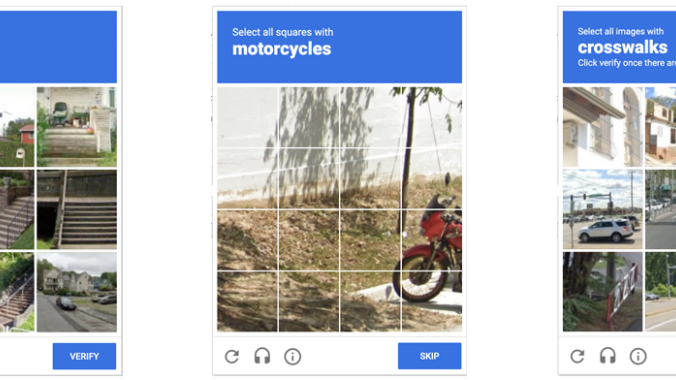- cross-posted to:
- [email protected]
- cross-posted to:
- [email protected]
Anyone who has been surfing the web for a while is probably used to clicking through a CAPTCHA grid of street images, identifying everyday objects to prove that they’re a human and not an automated bot. Now, though, new research claims that locally run bots using specially trained image-recognition models can match human-level performance in this style of CAPTCHA, achieving a 100 percent success rate despite being decidedly not human.
ETH Zurich PhD student Andreas Plesner and his colleagues’ new research, available as a pre-print paper, focuses on Google’s ReCAPTCHA v2, which challenges users to identify which street images in a grid contain items like bicycles, crosswalks, mountains, stairs, or traffic lights. Google began phasing that system out years ago in favor of an “invisible” reCAPTCHA v3 that analyzes user interactions rather than offering an explicit challenge.
Despite this, the older reCAPTCHA v2 is still used by millions of websites. And even sites that use the updated reCAPTCHA v3 will sometimes use reCAPTCHA v2 as a fallback when the updated system gives a user a low “human” confidence rating.
There is a Russian captcha solver bot called xevil that costs under $100 (I think, last time I looked) that has been able to solve nearly all captchas for years. You just have to supply it with relatively expensive proxy IP addresses because Google rate limits solve attempts.
So the title of this article has been true for a long long time. Capatchas are absolutely useless except against poor or uninformed script kiddies.


